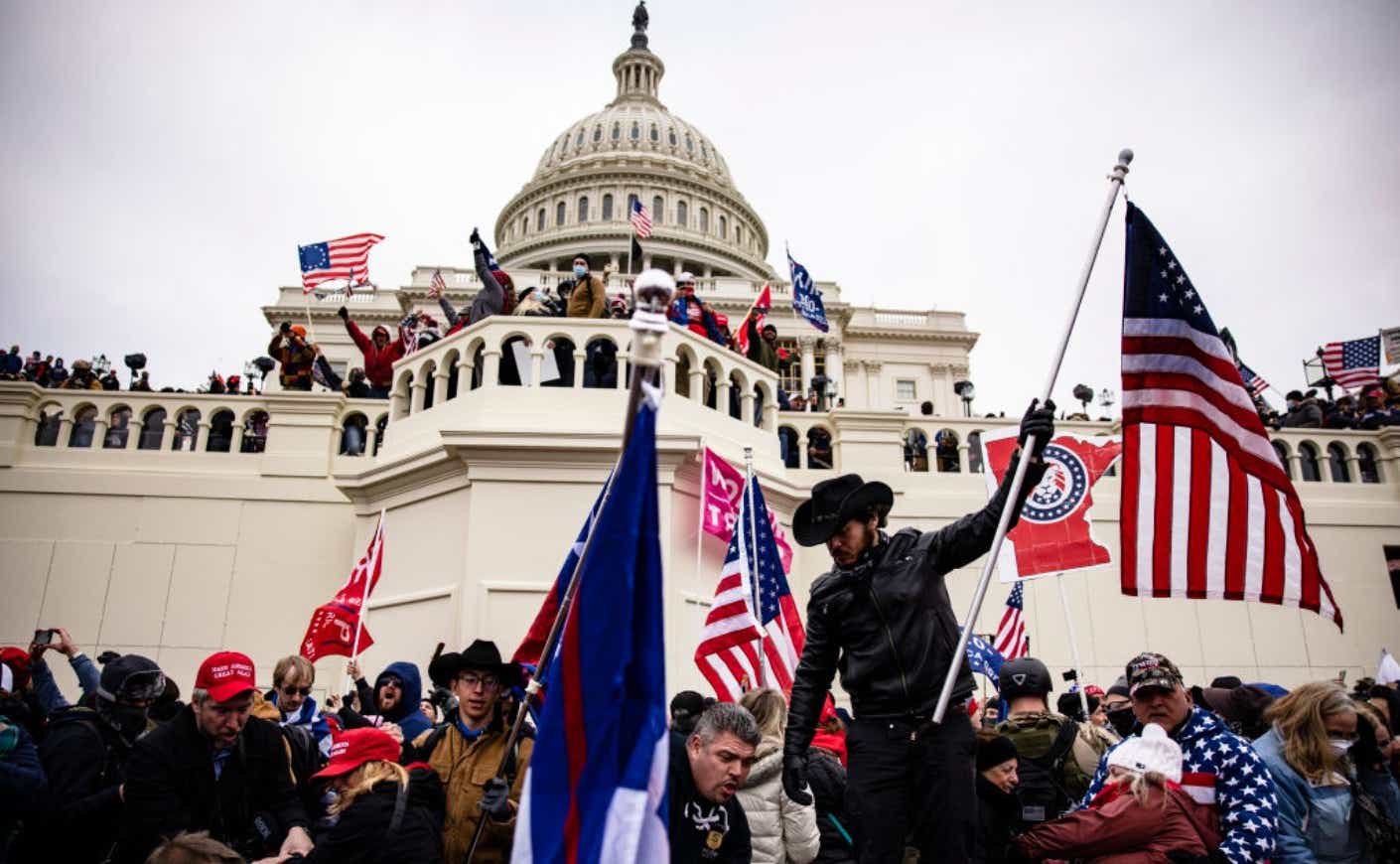A bipartisan bill that would offer some promising reform to the electoral system is exposing ongoing friction in the GOP over the party’s leader, former president Donald Trump.
The legislation at hand, the Electoral Count Reform and Presidential Transition Improvement Act, could be yet another loyalty test to Trump less than six weeks ahead of the highly anticipated midterm elections (though the former president himself has largely stayed quiet on the bill). That’s because lawmakers, led by Republican Susan Collins and Democrat Joe Manchin, crafted the proposal largely in response to the Jan. 6, 2021 attack at the Capitol by pro-Trump rioters.
But, unlike a similar bill that passed in the House last week, the Senate version is already enjoying substantial Republican support. Ohio Sen. Rob Portman, who is among the 11 Republican co-signers of the bill, says he believes 20 to 30 others will back the proposal and credits this largely to Senate Minority Leader Mitch McConnell, who said he’d “strongly support” it.
“Mitch’s endorsement of the final bill that came out of the Rules Committee was very important. If he had not supported it, it would have been tough for us to get a large vote,” Sen. Rob Portman told The Hill.
Here’s how the bill would change a more than 100-year-old law, and why it’s causing tension within the GOP.
What is the Electoral Count Act?
The legislation would make several changes to the Electoral Count Act of 1887 to address some of the longstanding ambiguities around the electoral law and curb future election interference.
For starters, it would significantly raise the number of House and Senate members required to object to Electoral College votes to at least one-fifth (under the current standards, only one member per chamber is needed for such a move). Meanwhile, the House version of this bill would make throwing out a state’s election results even harder by raising the objection threshold to one-third of each chamber. They also differ in how they address federal lawsuits challenging election results, with the House bill offering up new ways to sue, something some Republicans really oppose.
But the bills do share some similarities: Most notably, they clarify the vice president’s role in overseeing a joint session of Congress approving state-certified electoral results as strictly ceremonial.
What are Republicans saying about the bill?
In a move that all but assures its passage, McConnell hailed the Senate bill, saying the “chaos” of the attack on the Capitol “underscored the need for an update.” For context, the bill was initially co-sponsored by 10 Democrats and 10 Republicans in the Senate, so McConnell’s backing gives it a much stronger chance of clearing the 60-vote barrier to break a filibuster.
But not all of his fellow Republicans are on board: Texas senator Ted Cruz, who attempted to block Biden’s victory, was the lone Republican to vote against the Senate bill, though that didn’t stop it from clearing the chamber’s Rules Committee. His reasoning was that it would get in the way of Congress’s authority to root out voter fraud. Similarly, Pennsylvania Sen. Josh Hawley said he will “probably vote no” on the bill, saying he didn’t see a reason to change a decades-old bill. Others, including GOP senators Rick Scott and Rand Paul, are still on the fence but it looks like the bill may already have all the support it needs.
“I’m going to look at it really carefully. It’s certainly a noble effort, and I think the people working on it are really good people who want to be helpful,” said North Dakota Sen. Kevin Cramer.
What’s next?
Senate and House versions of the bill will eventually need to be reconciled, which could prove to be no easy task. Some Republicans, such as Rep. Brian Fitzpatrick, who voted against the House one said they were more inclined to back the Senate package because of its more modest changes to the electoral process.
As far as timing goes, a full vote on the Senate bill isn’t expected to take place until a lame-duck session of Congress at the end of the year. Even though the legislation probably won’t make the U.S. foolproof against future insurrections, the hope is that it will clear up at least some of the obscurities surrounding the American electoral system that Trump and his allies tried to capitalize on during the 2020 election.









